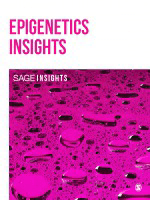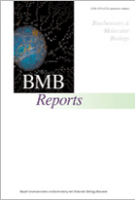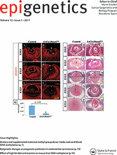
Epigenetics Insights
metrics 2024
Connecting Researchers to Transformative Findings
Introduction
Epigenetics Insights is an esteemed open-access journal published by SAGE Publications Ltd since 2018, dedicated to advancing the field of epigenetics and its implications in biochemistry and genetics. With an ISSN of 2516-8657, this journal has quickly established itself as a significant player in the academic landscape, positioned in the Q3 category for both Biochemistry and Genetics based on the 2023 rankings. Our mission is to provide a forum for high-quality research that delves into the complexities of epigenetic mechanisms, their biological significance, and their potential applications in medicine and biotechnology. By embracing the principles of open access, we ensure that cutting-edge findings are readily available to researchers, professionals, and students worldwide, thereby fostering knowledge sharing and collaborative advancements in this dynamic field. With articles indexed in Scopus and a growing citation impact, Epigenetics Insights aims to engage a diverse audience and inspire innovative research practices within the global scientific community.
Metrics 2024
 0.60
0.60 3.20
3.20 2.20
2.20 12
12Metrics History
Rank 2024
Scopus
IF (Web Of Science)
JCI (Web Of Science)
Quartile History
Similar Journals

EUROPEAN JOURNAL OF ENDOCRINOLOGY
Fostering Collaboration in Endocrinology and BeyondEUROPEAN JOURNAL OF ENDOCRINOLOGY, published by Oxford University Press, stands as a premier international platform dedicated to advancing research in the burgeoning field of endocrinology, diabetes, and metabolism. Since its inception in 1994, this esteemed journal has gained recognition for its rigorous peer-reviewed articles and innovative studies, evidenced by its impressive Q1 rankings across multiple categories, including Endocrinology and Medicine. With a focus on disseminating critical findings and fostering interdisciplinary collaboration, the journal ranks 33rd out of 244 in Endocrinology, Diabetes, and Metabolism, and 20th out of 128 in Biochemistry, Genetics, and Molecular Biology according to Scopus metrics, positioning it in the top percentiles for researchers worldwide. Although it does not offer open access, the journal remains a vital resource for academics and practitioners alike who seek to stay at the forefront of endocrine research. The EUROPEAN JOURNAL OF ENDOCRINOLOGY continues to push the boundaries of knowledge, driving forward the understanding of complex hormonal functions and their clinical implications.

AGING CELL
Transforming Understanding of Aging Through Open AccessAGING CELL is a premier peer-reviewed journal published by Wiley, specializing in the rapidly evolving field of aging research and cell biology. Established in 2002 and enjoying an impressive track record as evidenced by its Q1 ranking in both Aging and Cell Biology categories for 2023, the journal has become a vital resource for researchers and professionals alike. With a significant impact factor highlighting its scholarly influence, AGING CELL offers an open access model since 2014, ensuring that groundbreaking research is accessible to the global community. The journal covers a wide array of topics related to the mechanisms of aging at the cellular and molecular levels, making it essential reading for anyone invested in understanding the complexities of aging processes and their implications for health and disease. With a broad international readership based in the United Kingdom and beyond, AGING CELL is dedicated to disseminating high-quality research that impacts scientific understanding and fosters advances in the field.

EXPERIMENTAL AND MOLECULAR MEDICINE
Advancing the frontiers of molecular medicine.EXPERIMENTAL AND MOLECULAR MEDICINE, published by SpringerNature, is a premier open-access journal that has been at the forefront of biomedical research since its establishment in 1996. With a focus on innovative studies in biochemistry, molecular biology, and clinical biochemistry, the journal has consistently maintained a distinguished position within the top quartile (Q1) across multiple categories, underscoring its significant impact in these fields. The journal offers researchers and practitioners a platform for high-quality, peer-reviewed articles that advance our understanding of molecular mechanisms underlying health and disease. As a crucial resource for scholars seeking to explore cutting-edge research and practical advancements, its inclusion in relevant databases such as Scopus reflects an exceptional ranking with notable percentiles—placing it among the best in biomedical sciences. With a commitment to open access, EXPERIMENTAL AND MOLECULAR MEDICINE ensures that findings are readily available to the global academic community, facilitating collaboration and innovation in molecular medicine.

BMB Reports
Unlocking Knowledge for a Healthier TomorrowBMB Reports is a distinguished open-access journal published by the Korean Society of Biochemistry & Molecular Biology since 2008, making significant contributions to the fields of biochemistry, molecular biology, and medicine. With a current impact factor that positions it in the Q2 category for Biochemistry and Q1 for Miscellaneous Medicine, this journal supports a wide dissemination of high-quality research findings, fostering robust dialogue among researchers, professionals, and students alike. Based in Seoul, South Korea, BMB Reports aims to publish innovative studies that advance our understanding of biochemical and molecular processes, thus shaping the future of health and medicine. The journal's commitment to open access enhances the visibility of its articles, allowing for greater accessibility and engagement in the scientific community. With notable rankings in both the Biochemistry and Molecular Biology categories, BMB Reports stands as a vital resource for those seeking to stay at the forefront of research in these rapidly evolving disciplines.

Nature Aging
Transforming Aging Studies for a Healthier FutureNature Aging, published by SPRINGERNATURE in Germany, stands as a premier journal dedicated to advancing the field of aging research. With high-ranking performance indicators, including a Q1 classification in Aging, Geriatrics and Gerontology, and Neuroscience (miscellaneous), this journal emphasizes the interdisciplinary nature of aging studies. Its Scopus rankings highlight its impact, achieving remarkable positions such as #1 in Neuroscience and #2 in both Geriatrics and Biochemistry for aging-related research. Although currently not open access, Nature Aging provides a wealth of cutting-edge research and critical reviews that aid researchers and practitioners in understanding the complexities of aging mechanisms and their implications. As the field continues to evolve from 2021 through 2024, this journal not only facilitates the dissemination of knowledge but also fosters innovative discussions that propel the science of aging forward. Join the vibrant community of scholars and professionals dedicated to solving the challenges associated with aging by engaging with the content published in Nature Aging.

GENE
Fostering Academic Excellence in Genetics and MedicineGENE, an esteemed journal published by Elsevier, serves as a vital resource for researchers and professionals in the fields of genetics and medicine. With an ISSN of 0378-1119 and an E-ISSN of 1879-0038, this scholarly journal has been at the forefront of genetic research since its inception in 1976 and is set to continue until 2025. Situated in the Netherlands, GENE is recognized for its significant contributions, reflected in its Q2 ranking in both Genetics and Miscellaneous Medicine categories for 2023. This positioning within the Scopus rankings demonstrates its impact and relevance in a competitive field, where it holds the rank of #129 out of 347 in Genetics, placing it within the 62nd percentile. Although it does not offer open access options, GENE provides invaluable insight into contemporary genetic research, thereby fostering academic discussions and advancements. Researchers, professionals, and students alike will find GENE an essential platform for disseminating knowledge and exploring innovative developments in genetics and associated sciences.

Human Genomics
Transforming Health Through Genetic InsightsHuman Genomics, published by BMC, is a leading open-access journal dedicated to advancing the field of genomics and its applications in health and disease. Since its inception in 2003, the journal has provided a vital platform for researchers to disseminate groundbreaking findings related to genetic research, contributing significantly to areas such as Drug Discovery, Genetics, Molecular Biology, and Molecular Medicine, as reflected in its Q1 and Q2 quartile rankings throughout 2023. With an ISSN of 1473-9542 and an E-ISSN of 1479-7364, Human Genomics not only delivers high-quality, peer-reviewed research but also ensures accessibility to a broader audience, empowering professionals, students, and academics to stay at the forefront of genomic science. Through its rigorous editorial standards and impactful publications, the journal fosters a collaborative environment for innovative research across the globe from its base in the United Kingdom. By promoting open access since its launch, Human Genomics continues to enhance the visibility and impact of genetic studies, making it an essential resource for anyone involved in the rapidly evolving field of human genomics.

Immuno
Driving Progress in Immunological Science and ApplicationsWelcome to Immuno, a pioneering open-access journal published by MDPI that serves as a key platform for the dissemination of innovative research in the fields of immunology, biochemistry, and genetics. Established in 2021, this journal has rapidly established itself within the academic community, currently ranking in the 53rd percentile in Medicine (miscellaneous) and 50th percentile in Biochemistry, Genetics, and Molecular Biology according to Scopus metrics. With a commitment to advancing our understanding of immune mechanisms and their applications in health and disease, Immuno is dedicated to publishing high-quality peer-reviewed articles that contribute valuable insights to both researchers and practitioners. Positioned in the heart of Switzerland, its global accessibility and diverse editorial board are a testament to its aim to promote knowledge exchange among scientists, practitioners, and students alike. Explore the latest discoveries and advancements in immunological research through Immuno, where your contributions help shape the future of this critical area of study.

Epigenetics
Unlocking the Mysteries of Epigenetics for Health and HealingEpigenetics, published by Taylor & Francis Inc, is a leading journal in the fields of Cancer Research, Medicine (miscellaneous), and Molecular Biology. With an ISSN of 1559-2294 and an E-ISSN of 1559-2308, this journal has been paving the way for groundbreaking research since its inception in 2006, and it continues to play a crucial role in advancing our understanding of epigenetic mechanisms and their implications in health and disease. The journal is highly regarded, ranking in the Q1 category for Medicine and Q2 for both Cancer Research and Molecular Biology according to the 2023 category quartiles. Researchers and professionals in the field will find invaluable insights and innovative studies within its pages, making it an essential resource for those engaged in cutting-edge research. Although the journal is not open access, it encourages a comprehensive understanding through high-quality peer-reviewed content. With its creative exploration of the epigenetic landscape, Epigenetics serves as a vital platform for the sharing of knowledge that could lead to breakthroughs in treatments and therapies.

INTERNATIONAL JOURNAL OF BIOCHEMISTRY & CELL BIOLOGY
Illuminating the Path of Biochemical ExplorationThe International Journal of Biochemistry & Cell Biology, published by Pergamon-Elsevier Science Ltd, stands as a pivotal resource in the fields of biochemistry and cell biology. With an ISSN of 1357-2725 and an E-ISSN of 1878-5875, this prestigious journal has been a key platform for disseminating cutting-edge research since its inception in 1995. The journal currently holds an impressive Q1 ranking in Biochemistry and a Q2 ranking in Cell Biology for the year 2023, reflecting its commitment to high-quality research and its influence within the scientific community. With a significant Scopus ranking of 94/438 in Biochemistry and 96/285 in Cell Biology, the journal plays a crucial role in advancing knowledge and fostering innovative approaches in these dynamic fields. Though it is not an open-access journal, the International Journal of Biochemistry & Cell Biology remains accessible to a wide audience, making it a vital resource for researchers, professionals, and students alike, who are eager to explore and contribute to the ongoing advancements in biochemistry and cell biology.